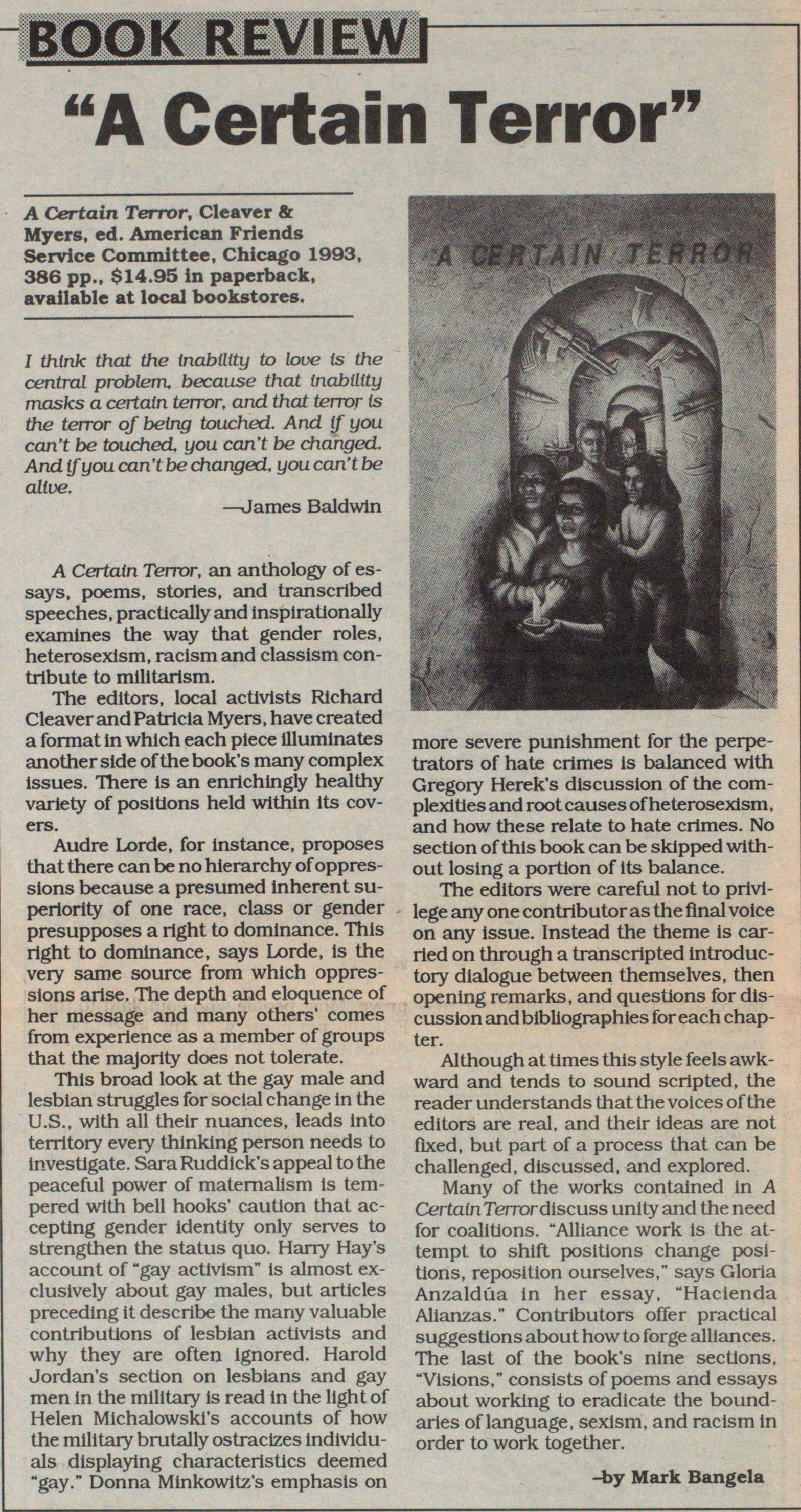"a Certain Terror"

BOOK REVIEW
"A Certain Terro"
A Certain Terror, Cleaver & Myers, ed. American Friends Service Committee, Chicago 1993, 386 pp., $14.95 in paperback, available at local bookstores.
I think that the inability to love is the central problem, because that inability masks a certain terror, and that terror is the terror of being touched. And íf you can't be touched, you can't be changed. And If you can't be changed, you can't be alive. - James Baldwln
A Certain Terror, an anthology of essays, poems, stories, and transcribed speeches, practically and inspirationally examines the way that gender roles, heterosexism, racism and classism contribute to militarism.
The editors, local activists Richard Cleaver and Patricia Myers, have created a format in which each piece illuminates another side of the book's many complex issues. There is an enrichingly healthy variety of positions held within its covers.
Audre Lorde, for instance, proposes that there can be no hierarchy of oppressions because a presumed inherent supertiority of one race, class or gender presupposes a right to dominance. This right to dominance, says Lorde, is the very same source from which oppressions arise. The depth and eloquence of her message and many others' comes from experience as a member of groups that the majority does not tolerate.
This broad look at the gay male and lesbian struggles for social change in the U.S., with all their nuances, leads into territory every thinking person needs to investigate. Sara Ruddick's appeal to the peaceful power of matemalism is tempered wlth bell hooks' caution that accepting gender identity only serves to strengthen the status quo. Harry Hay's account of "gay activism" Is almost exclusively about gay males, but articles preceding it describe the many valuable contributions of lesbian activists and why they are often ignored. Harold Jordan's section on lesbians and gay men in the military is read in the light of Helen Michalowski's accounts of how the military brutally ostracizes individuals displaying characteristics deemed "gay." Donna Minkowitz's emphasis on more severe punishment for the perpetrators of hate crimes is balanced with Gregory Herek's discussion of the complexities and root causes of heterosexism, and how these relate to hate crimes. No section of this book can be skipped without losing a portion of its balance.
The editors were careful not to privilege any one contributor as the final voice on any issue. Instead the theme is carried on through a transcripted introductory dialogue between themselves, then opening remarks, and questions for discussion and bibliographies for each chapter.
Although at times this style feels awkward and tends to sound scripted, the reader understands that the voices of the editors are real, and their ideas are not fixed, but part of a process that can be challenged, discussed, and explored.
Many of the works contained in A Certain Terror discuss unity and the need for coalitions. "Alliance work is the attempt to shift positions change positions, reposition ourselves," says Gloria Anzaldúa in her essay, "Hacienda Alianzas." Contributors offer practical suggestions about how to forge alliances. The last of the book's nine sections, "Visions," consists of poems and essays about working to eradicate the boundaries of language, sexism, and racism in order to work together.
- by Mark Bangela